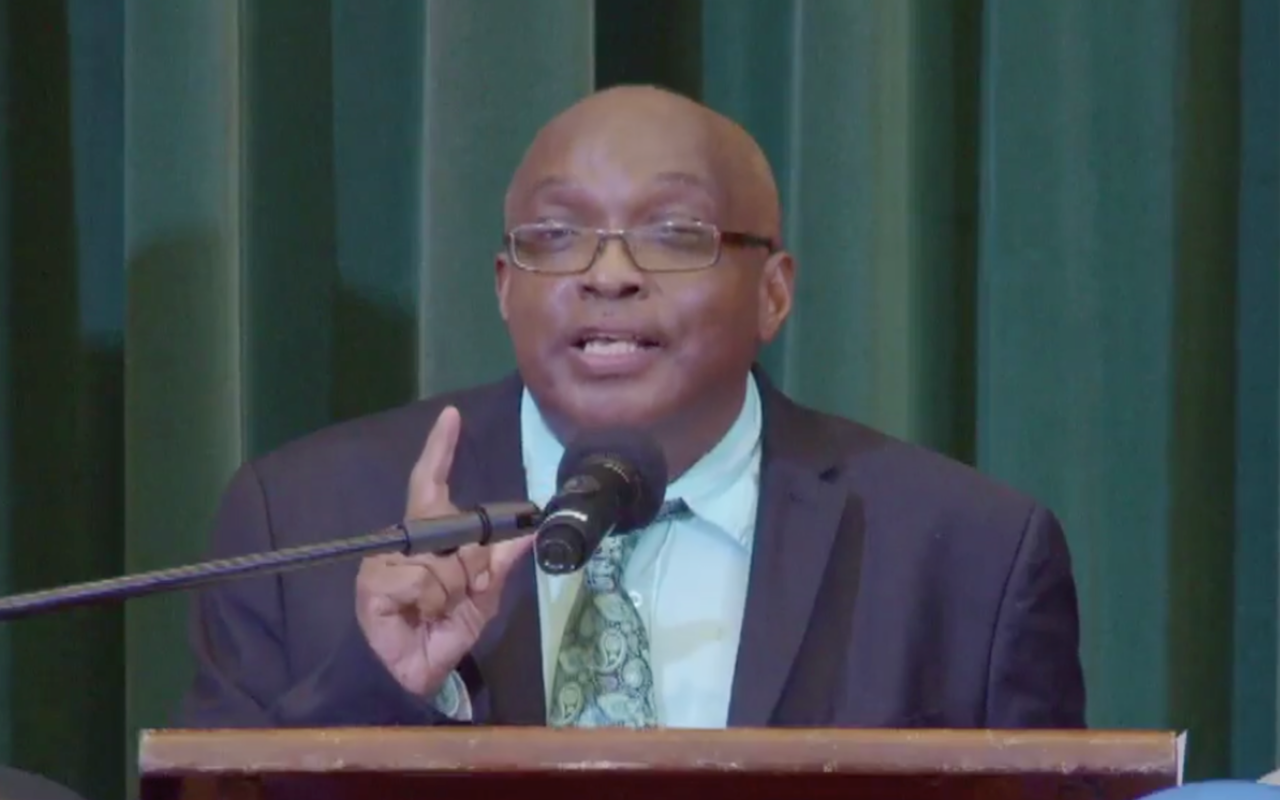Historian Henderson Carter has recommended that the late former prime minister Tom Adams be given the title of National Hero.
Stating that Adams’ contribution to Barbados “laid the foundation for the country to enter the 21st century with confidence”, Cater said: “Whenever the Government adds to the list of national heroes, Adams’ name must be considered because of the sheer weight of the impact of these initiatives on the lives of ordinary Barbadians.”
He was addressing the 9th Memorial Tom Adams Lecture of the Barbados Labour Party (BLP) on Monday night, which was focused on the topic, Tom Adams and the Nation Building Project.
Outlining the late leader’s contribution, Carter said Adams was responsible for tackling social injustice, getting heritage and culture on the national agenda, creating modern infrastructure to enhance national development and social betterment, as well as repositioning the economy for greater state participation and local ownership.
He also said it was Adams who made it possible for women to access certain social services and child support, introduced the unemployment scheme, placed emphasis on health care for the vulnerable, and provided support for the disabled community through the establishment of the National Disabilities Unit.
Carter also credited Adams with transforming the tenantry system so that plantation workers and other poor and underprivileged individuals and their families could benefit from housing opportunities and get away from the “grip” of plantation owners.
However, saying it was “despicable” that the word tenantry was still associated with some housing areas, Carter said “perhaps we have to rename those places terraces and heights, et cetera”, as he lauded the current administration for “adding another dimension to allow our citizens to navigate the high price of land” through its Home Ownership Providing Energy (HOPE) project.
The historian further credited Adams with getting Barbadians involved in the credit union movement and said he was also responsible for the building out of the offshore sector, as he urged the Government to “keep it going”.
In relation to culture and heritage as part of the national agenda, he said Adams was central to getting the images of Barbadians on the national currency, promoting celebration of the achievements of “freedom fighters”, the concept of the Frank Collymore Hall which is now one of the main places for cultural activities, and the construction of the iconic Central Bank.
Against that background, Carter lauded the current administration for building the Golden Square Freedom Park and inscribing the names of citizens.
“When Adams put heritage and culture on the map, what he was really doing was building two economic planks – one for the creative economy or what we call the cultural industries, and the other for heritage tourism so that when we invite visitors to this country we can take them to these lovely places – of course, those place we have to continue to develop,” he said.
The educator said Adams succeeded in advancing the island’s national infrastructure, modernising and expanding old school plants, giving people an opportunity to have their education in “wonderful conditions” instead of a “congested hall”.
He added that the former prime minister “succeeded also in expanding the health infrastructure in the 1980s” and conceptualised the modernisation of the ABC Highway which later brought commercial development to several areas, including Haggatt Hall and Warrens.
The trained tour guide described the plans for the current administration to continue roadworks onto the East Coast as a “game changer for tourism in Barbados”.
Stating that “we need to move our country forward and continue the nation building process”, Carter called on Government to develop the island’s physical resources “to strengthen our heritage tourism product”.
He singled out several locations including the old Glendairy Prison, the old Screw Dock, and Cherry Tree Hill.
“We also need to place more emphasis on agriculture and industry to create more employment for our people and stimulate exports,” he said, as he welcomed the plan to stop exporting bulk sugar.
Carter suggested that the use and benefits of the aloe vera plant, tamarind and coconut be fully explored and used to develop different items that could create new industries and earn the country foreign exchange.
He also called on Barbadians and the public and the private sector to be more responsive to the needs of others and “accept voluntarism as part of our civic duty”.
“We cannot expect money for everything we have to give back to a country that has given so much to us,” said Carter.
(MM)




